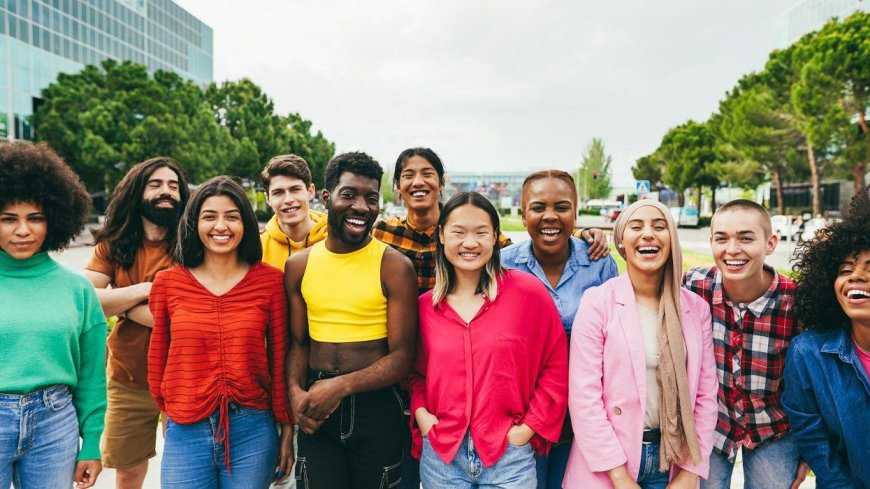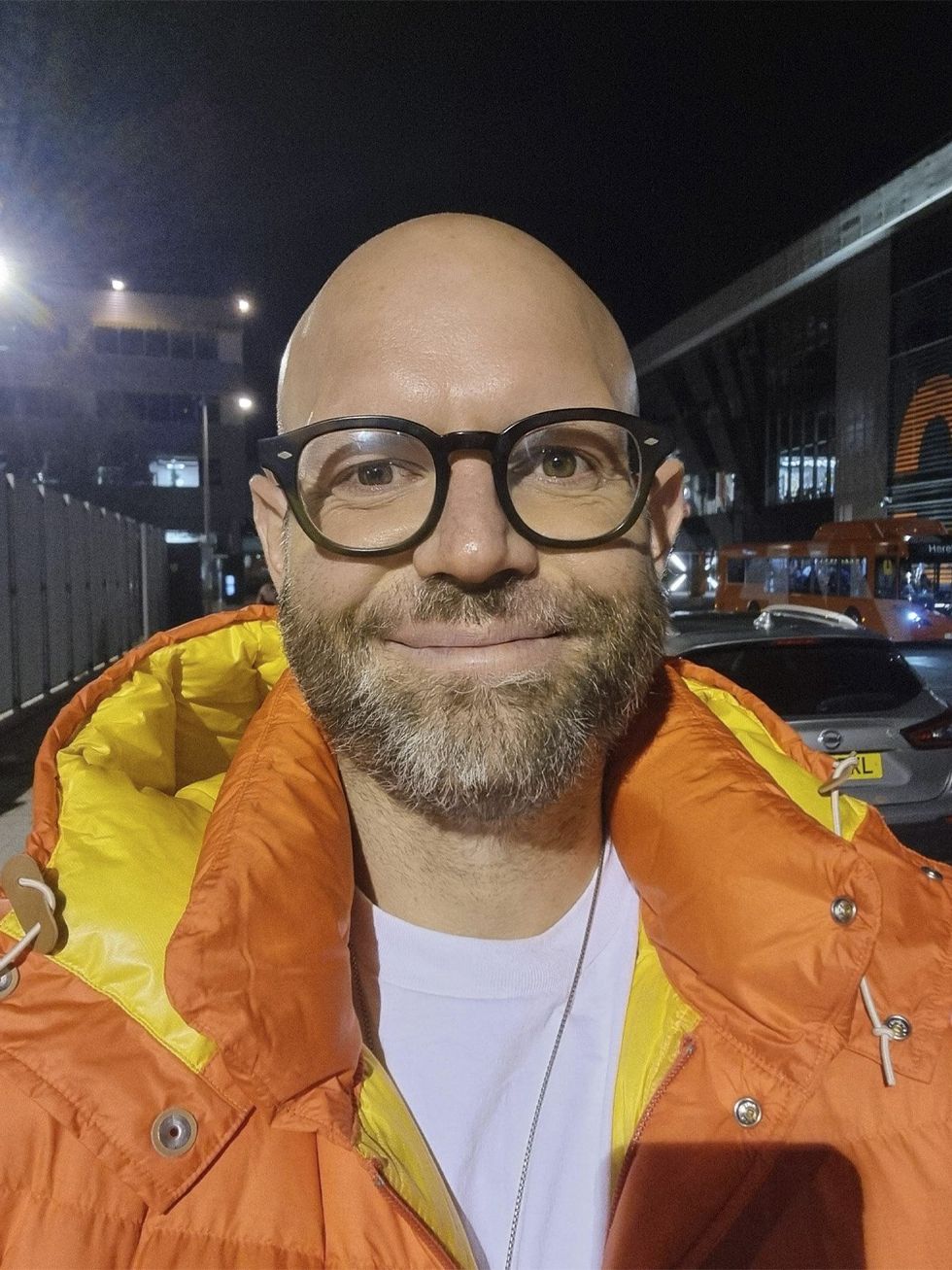Let The Guy Who Founded UK's Biggest LGBTQ+ Club Night Plan Your Next Travel Experience
Daniel Smith is the vice president of experience delivery at Remote Year, who makes sure travelers get the unforgettable experiences the company promises. And that’s not an easy task. The company’s clients aren’t going on a vacation, they’re working. Yes, they are someplace wonderful, but they still have to do their day jobs. That leaves evenings and roughly eight days out of every 30 in which Smith and his team must cram the experience of a lifetime.Fortunately Smith, a 42-year-old gay man based in London (but originally from the British countryside), knows how to put on a hell of a party. Smith is one of the original founders of the U.K.’s Sink the Pink, perhaps the biggest and most inclusive LGBTQ+ club nights in Britain, which closed last January after 13 unforgettable years. The event, Smith recalls, “was actually the genesis of me and some friends deciding that we weren't very happy with the club scene in London at the time, and we’re like, ‘we have much more fun having house parties!'”So they did, they’d go to a friend’s house play music for each other and get dressed up “in whatever clothes and rags that we could find. The first few that we did, it was my nan’s clothes,” Smith says wryly. Those parties became legendary and over the next decade Sink the Pink grew into a massive brand. It threw its last party in 2022 but lives on in performances and the new book, Sink the Pink's Manifesto for Misfits: Be Different, Be Free, Be You by another founder, Glyn Fussell. Sink the Pink said goodbye in April 2922 Since Sink the Pink, Smith has managed hundreds of additional large-scale events, including the British Academy Games Awards show. “As you know,” Smith says, “gaming is now a larger industry than the film industry” and that means the BAFTA Games awards show now dwarfs BAFTA Film Awards (aka the British version of the Oscars).Remote Year likes to say, “Bring your work with you – we’ll take care of the rest!” The world’s leading remote work community, the company brings “like-minded travelers” together to live and work together while also exploring the region, making friends, and having life-changing experiences.The company offers one, four, and 12-month adventures. What sets Remote Year apart is that they don’t just provide live-work spaces and leave you to figure out the rest on your own. Instead, the company works very hard to build community (more on that later) and create opportunities for exploration and growth. Courtesy Daniel SmithNow Smith wants to make sure that Remote Year clients are “able to maximize their time when they’re not working.” He looks for activities unique to a particular destination, that leave visitors feeling like they understand the city better. For example, he might recommend that those staying in East London explore the creative quarter by visiting the weekend markets, a series of markets “with a mix of local goods and produce and crafts and food markets. There’s a flower market and then it goes into an antique market.”But while Smith may know London like the back of his hand, he doesn’t know every city where Remote Year operates — and he doesn’t have too. That’s because the company employs “city teams,” whose job it is to know their geographic area and the most meaningful experiences to be had there.Smith recalls that Remote Year’s city manager in Mexico City took him to “an incredible underground LGBT disco that wasn’t advertised. You had to know somebody to get in…we were whisked into a backdoor. And, that was amazing.”For those who want something more than a day trip or a night out, Remote Year’s city teams will also organize weekend adventures or 4-day trips when there is something “is culturally enriching and not to be missed,” Smith says. If you’re in South Africa that might mean a safari with a local guide.While an African safari may sound life-changing in itself, Smith says Remote Year aims for something else. Smith explains, “the predominant reasons that people choose to travel with us, is because we provide them with a community to travel with. So, we do lots of community building — not exercises, that makes it sound laborious — but lots of community building opportunities.” That work begins before members ever leave their homes, as community leaders help to create a cohort of “like-minded” travelers. Embedded within the group, the leader’s role is to help build a healthy and harmonious community, rather than one characterized by strife or the inability to bond.“We’re bringing people together of different nationalities and different ages and different professions and different life experiences,” Smith says. “It’s about making sure that everybody is cognizant of everybody else’s histories and stories, and [about] tolerance, being respectful of everybody.”Again, that work begins before suitcases are packed. “When you sign up for Remote Year, we kind of ask you quite a lot about yours


Daniel Smith is the vice president of experience delivery at Remote Year, who makes sure travelers get the unforgettable experiences the company promises. And that’s not an easy task. The company’s clients aren’t going on a vacation, they’re working. Yes, they are someplace wonderful, but they still have to do their day jobs. That leaves evenings and roughly eight days out of every 30 in which Smith and his team must cram the experience of a lifetime.
Fortunately Smith, a 42-year-old gay man based in London (but originally from the British countryside), knows how to put on a hell of a party. Smith is one of the original founders of the U.K.’s Sink the Pink, perhaps the biggest and most inclusive LGBTQ+ club nights in Britain, which closed last January after 13 unforgettable years. The event, Smith recalls, “was actually the genesis of me and some friends deciding that we weren't very happy with the club scene in London at the time, and we’re like, ‘we have much more fun having house parties!'”
So they did, they’d go to a friend’s house play music for each other and get dressed up “in whatever clothes and rags that we could find. The first few that we did, it was my nan’s clothes,” Smith says wryly. Those parties became legendary and over the next decade Sink the Pink grew into a massive brand. It threw its last party in 2022 but lives on in performances and the new book, Sink the Pink's Manifesto for Misfits: Be Different, Be Free, Be You by another founder, Glyn Fussell.
 Sink the Pink said goodbye in April 2922
Sink the Pink said goodbye in April 2922
Since Sink the Pink, Smith has managed hundreds of additional large-scale events, including the British Academy Games Awards show. “As you know,” Smith says, “gaming is now a larger industry than the film industry” and that means the BAFTA Games awards show now dwarfs BAFTA Film Awards (aka the British version of the Oscars).
Remote Year likes to say, “Bring your work with you – we’ll take care of the rest!” The world’s leading remote work community, the company brings “like-minded travelers” together to live and work together while also exploring the region, making friends, and having life-changing experiences.
The company offers one, four, and 12-month adventures. What sets Remote Year apart is that they don’t just provide live-work spaces and leave you to figure out the rest on your own. Instead, the company works very hard to build community (more on that later) and create opportunities for exploration and growth.
 Courtesy Daniel Smith
Courtesy Daniel Smith
Now Smith wants to make sure that Remote Year clients are “able to maximize their time when they’re not working.” He looks for activities unique to a particular destination, that leave visitors feeling like they understand the city better. For example, he might recommend that those staying in East London explore the creative quarter by visiting the weekend markets, a series of markets “with a mix of local goods and produce and crafts and food markets. There’s a flower market and then it goes into an antique market.”
But while Smith may know London like the back of his hand, he doesn’t know every city where Remote Year operates — and he doesn’t have too. That’s because the company employs “city teams,” whose job it is to know their geographic area and the most meaningful experiences to be had there.
Smith recalls that Remote Year’s city manager in Mexico City took him to “an incredible underground LGBT disco that wasn’t advertised. You had to know somebody to get in…we were whisked into a backdoor. And, that was amazing.”
For those who want something more than a day trip or a night out, Remote Year’s city teams will also organize weekend adventures or 4-day trips when there is something “is culturally enriching and not to be missed,” Smith says. If you’re in South Africa that might mean a safari with a local guide.
While an African safari may sound life-changing in itself, Smith says Remote Year aims for something else. Smith explains, “the predominant reasons that people choose to travel with us, is because we provide them with a community to travel with. So, we do lots of community building — not exercises, that makes it sound laborious — but lots of community building opportunities.” That work begins before members ever leave their homes, as community leaders help to create a cohort of “like-minded” travelers. Embedded within the group, the leader’s role is to help build a healthy and harmonious community, rather than one characterized by strife or the inability to bond.
“We’re bringing people together of different nationalities and different ages and different professions and different life experiences,” Smith says. “It’s about making sure that everybody is cognizant of everybody else’s histories and stories, and [about] tolerance, being respectful of everybody.”
Again, that work begins before suitcases are packed. “When you sign up for Remote Year, we kind of ask you quite a lot about yourself [including] how you identify, your sexual preferences, and things like that. That information gets confidentially passed on to the community leaders so that they’ve got a good understanding about [the diversity of] the group. We have a couple of different sessions that everybody has to do before they join. So we have one session called co-founding community…where we talk about setting community values and the importance of respecting people.”
Smith says the number one concern people signing up for a Remote Year adventure express is that they won’t fit in with the community. That’s their primary concern, Smith says. “It’s not like ‘the Wi Fi won’t be strong enough’ or that ‘I won’t like the cuisine,’ or ‘I’m gonna miss my friends and family,’ it’s ‘that I won't fit in with the community.’”
People come to Remote Year thinking they are going to have “this wonderful experience of maybe traveling and working remotely,” Smith says. “And I might make some friends along the way. That’s kind of the hierarchy. But what happens is when people leave, it’s the other way around. The biggest thing people say they took away from this experience is the community.”
Smith jokes “we find that difficult because you can’t sell something you have to experience [to believe]…we can’t be like, ‘Hey, guys, come with us. You’re gonna meet the people you always wished you had met, and make lifetime friends.’ You just won’t believe it.”
In creating community for clients, Remote Year has also created community for their employees. “I honestly love everybody who I work with,” Smith says. “There’s a culture of just support internally. It doesn’t become like a job so much, but a bit more like a way of life. Which is a really huge, lovely, lovely thing.”

 Mark
Mark 





